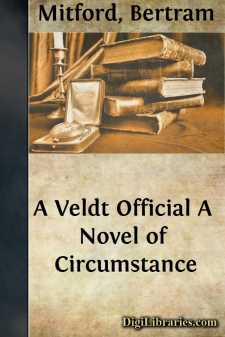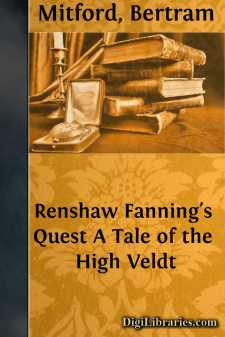Categories
- Antiques & Collectibles 13
- Architecture 36
- Art 48
- Bibles 22
- Biography & Autobiography 813
- Body, Mind & Spirit 142
- Business & Economics 28
- Children's Books 15
- Children's Fiction 12
- Computers 4
- Cooking 94
- Crafts & Hobbies 4
- Drama 346
- Education 46
- Family & Relationships 57
- Fiction 11829
- Games 19
- Gardening 17
- Health & Fitness 34
- History 1377
- House & Home 1
- Humor 147
- Juvenile Fiction 1873
- Juvenile Nonfiction 202
- Language Arts & Disciplines 88
- Law 16
- Literary Collections 686
- Literary Criticism 179
- Mathematics 13
- Medical 41
- Music 40
- Nature 179
- Non-Classifiable 1768
- Performing Arts 7
- Periodicals 1453
- Philosophy 64
- Photography 2
- Poetry 896
- Political Science 203
- Psychology 42
- Reference 154
- Religion 513
- Science 126
- Self-Help 84
- Social Science 81
- Sports & Recreation 34
- Study Aids 3
- Technology & Engineering 59
- Transportation 23
- Travel 463
- True Crime 29
The Sign of the Spider
by: Bertram Mitford
Categories:
Description:
Excerpt
"SWEET HOME!"
She was talking at him.
This was a thing she frequently did, and she had two ways of doing it. One was to talk at him through a third party when they two were not alone together; the other to convey moralizings and innuendo for his edification when they were—as in the present case.
Just now she was extolling the superabundant virtues of somebody else's husband, with a tone and meaning which were intended to convey to Laurence Stanninghame that she wished to Heaven one-twentieth part of them was vested in hers.
He was accustomed to being thus talked at. He ought to be, seeing he had known about thirteen years of it, on and off. But he did not like it any the better from force of habit. We doubt if anybody ever does. However, he had long ceased to take any notice, in the way of retort, no matter how acrid the tone, how biting the innuendo. Now, pushing back his chair from the breakfast-table, he got up, and, turning to the mantelpiece, proceeded to fill a pipe. His spouse, exasperated by his silence, continued to talk at—his back.
The sickly rays of the autumn sun struggled feebly through the murk of the suburban atmosphere, creeping half-ashamedly over the well-worn carpet, then up to the dingy wall-paper, whose dinginess had this redeeming point, that it toned down what otherwise would have been staring, crude, hideous. The furniture was battered and worn, and there was an atmosphere of dustiness, thick-laid, grimy, which seemed inseparable from the place. In the street a piano-organ, engineered by a brace of sham Italians, was rapping out the latest music-hall abomination. Laurence Stanninghame turned again to his wife, who was still seated at the table.
"Continue," he said. "It is a great art knowing when to make the most of one's opportunities, which, for present purposes, may be taken to mean that you had better let off all the steam you can, for you have only two days more to do it in—only two whole days."
"Going away again?" (staccato).
Laurence nodded, and emitted a cloud or two of smoke.
There rumbled forth a cannonade of words, which did not precisely express approval. Then, staccato:
"Where are you going to this time?"
"Johannesburg."
"What? But it's nonsense."
"It's fact."
"Well—of course you can't go."
"Who says so?"
"Of course you can't go, and leave us here all alone," she replied, speaking quickly. "Why, it's too preposterous! I've been treated shamefully enough all these years, but this puts the crowning straw on to it," she went on, beginning to mix her metaphor, as angry people—and especially angry women—will. "Of course you can't go!"
To one statement, as made above, he was at no pains to reply. He had heard it so often that it had long since passed into the category of "not new, not true, and doesn't matter." To the other he answered:
"I've an idea that the term 'of course' makes the other way; I can go, and I am going—in fact, I have already booked my passage by the Persian, sailing from Southampton the day after to-morrow....












